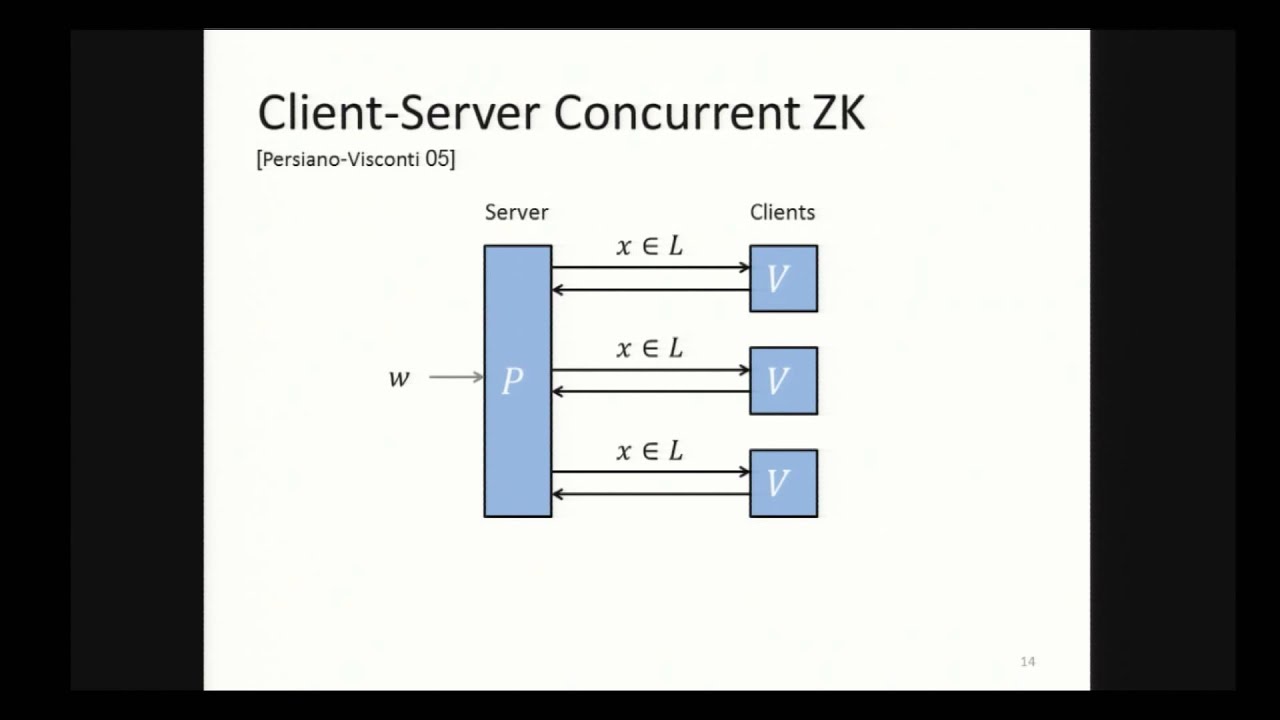Welcome to the resource topic for 2014/633
Title:
Client-Server Concurrent Zero Knowledge with Constant Rounds and Guaranteed Complexity
Authors: Ran Canetti, Abhishek Jain, Omer Paneth
Abstract:The traditional setting for concurrent zero knowledge considers a server that proves a statement in zero-knowledge to multiple clients in multiple concurrent sessions, where the server’s actions in a session are independent of all other sessions. Persiano and Visconti [ICALP 05] show how keeping a limited amount of global state across sessions allows the server to significantly reduce the overall complexity while retaining the ability to interact concurrently with an unbounded number of clients. Specifically, they show a protocol that has only slightly super-constant number of rounds; however the communication complexity in each session of their protocol depends on the number of other sessions and has no a priori bound. This has the drawback that the client has no way to know in advance the amount of resources required for completing a session of the protocol up to the moment where the session is completed. We show a protocol that does not have this drawback. Specifically, in our protocol the client obtains a bound on the communication complexity of each session at the start of the session. Additionally the protocol is constant-rounds. Our protocol is fully concurrent, and assumes only collision-resistant hash functions. The proof requires considerably different techniques than those of Persiano and Visconti. Our main technical tool is an adaptation of the “committed-simulator” technique of Deng et. al [FOCS 09].
ePrint: https://eprint.iacr.org/2014/633
Talk: https://www.youtube.com/watch?v=IVbPEPfyFpk
See all topics related to this paper.
Feel free to post resources that are related to this paper below.
Example resources include: implementations, explanation materials, talks, slides, links to previous discussions on other websites.
For more information, see the rules for Resource Topics .
